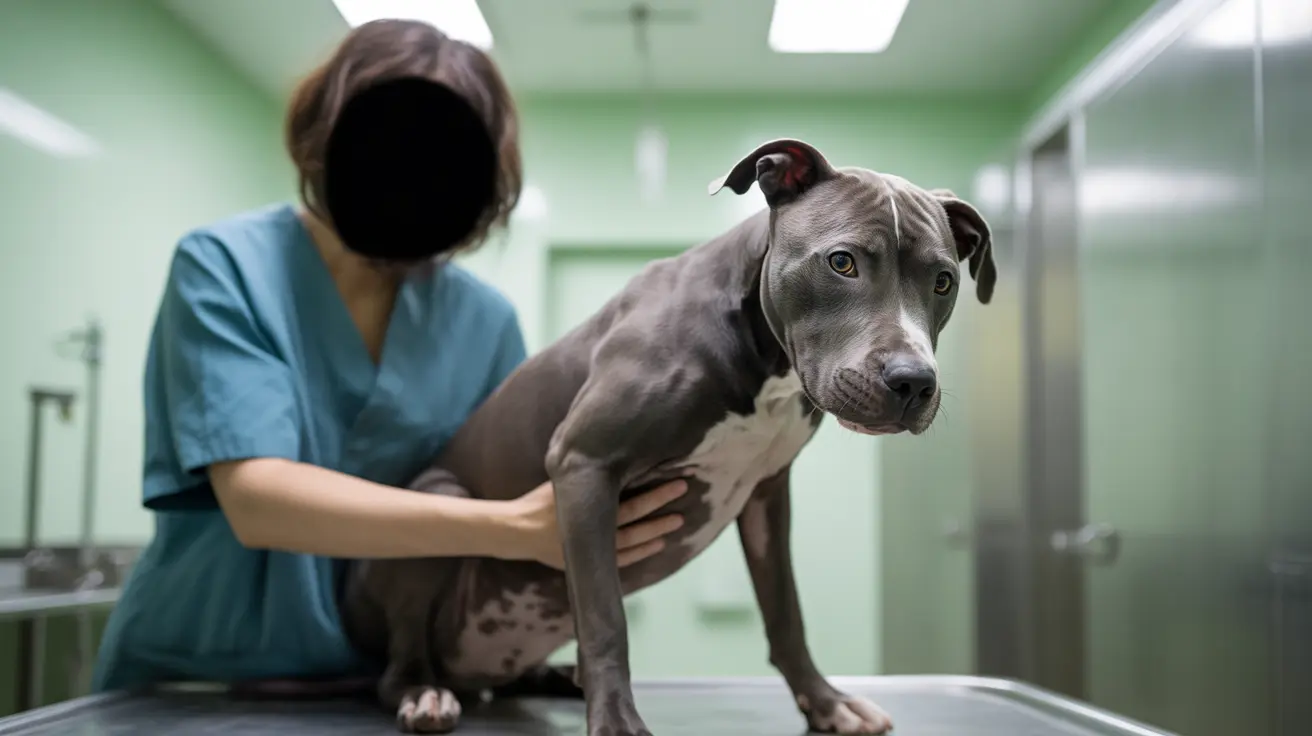Fungal pneumonia in dogs is a severe respiratory condition that requires immediate veterinary attention and comprehensive treatment. When fungal organisms invade a dog's lungs, they can cause significant illness and potentially life-threatening complications if left untreated. Understanding this condition is crucial for pet owners to ensure early detection and proper care.
This comprehensive guide will explore the causes, symptoms, diagnosis, and treatment options for fungal pneumonia in dogs, helping pet owners recognize warning signs and understand the importance of prompt medical intervention.
Common Causes and Risk Factors
Fungal pneumonia typically develops when dogs inhale fungal spores from their environment. Common fungi responsible for this condition include Histoplasma, Blastomyces, Coccidioides, and Aspergillus species. These organisms thrive in areas with rich soil, decaying vegetation, and environments containing bird droppings or bat guano.
Several factors can increase a dog's risk of developing fungal pneumonia:
- Male dogs (2-4 times more susceptible than females)
- Compromised immune systems
- Young or elderly dogs
- Dogs with pre-existing respiratory conditions
- Extended exposure to high-risk environments
Recognizing the Signs and Symptoms
Early detection of fungal pneumonia is crucial for successful treatment. Watch for these common symptoms:
- Persistent coughing (may be productive)
- Difficulty breathing or rapid breathing
- Lethargy and depression
- Loss of appetite and weight loss
- Fever
- Exercise intolerance
- Nasal discharge
- Breathing with an open mouth
Diagnosis and Veterinary Assessment
Veterinarians use multiple diagnostic tools to confirm fungal pneumonia and determine its severity. These typically include:
- Physical examination and lung auscultation
- Chest X-rays
- Blood tests and complete blood count
- Urine antigen testing
- Fine-needle aspirates or biopsies
- Specialized fungal cultures
Treatment Approaches and Management
Treatment for fungal pneumonia is typically long-term and multi-faceted, often lasting several months. The primary components include:
Antifungal Medication
Systemic antifungal drugs form the cornerstone of treatment. Common medications include:
- Itraconazole
- Fluconazole
- Amphotericin B
- Voriconazole
Supportive Care
Additional treatments may include:
- Oxygen therapy
- Intravenous fluids
- Nutritional support
- Anti-inflammatory medications
- Regular monitoring of liver and kidney function
Recovery and Prognosis
The recovery rate for fungal pneumonia varies, with successful outcomes generally seen in up to 70% of cases. Factors affecting prognosis include:
- Speed of diagnosis and treatment initiation
- Extent of lung involvement
- Presence of systemic infection
- Overall health of the dog
- Compliance with treatment protocols
Frequently Asked Questions
What are the common signs and symptoms of fungal pneumonia in dogs?
The most common signs include persistent coughing, difficulty breathing, lethargy, weight loss, fever, and exercise intolerance. Dogs may also show nasal discharge and open-mouth breathing during physical activity.
How is fungal pneumonia in dogs diagnosed by veterinarians?
Veterinarians diagnose fungal pneumonia through a combination of physical examination, chest X-rays, blood tests, urine antigen testing, and sometimes tissue samples or biopsies. They may also perform specialized fungal cultures to identify the specific organism causing the infection.
What treatment options are available for dogs with fungal pneumonia, and how long does treatment typically last?
Treatment primarily involves long-term antifungal medications, which may be administered for several months. Additional supportive care may include oxygen therapy, IV fluids, and anti-inflammatory medications. Treatment duration typically ranges from 6-12 months, depending on severity.
What environmental factors increase a dog's risk of developing fungal pneumonia?
Risk factors include exposure to areas with rich soil, decaying vegetation, bird droppings, and bat guano. Dogs in the Midwest, South, and river valley regions of the United States are at higher risk due to the prevalence of certain fungi in these areas.
Can fungal pneumonia in dogs be prevented, and what should owners do if they suspect their dog has this illness?
While there's no vaccine, owners can reduce risk by limiting exposure to high-risk environments. If you suspect fungal pneumonia, seek immediate veterinary care. Early detection and treatment significantly improve the chances of recovery.






